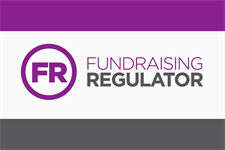The overwhelming majority of charities that have been asked to pay a voluntary fundraising levy to cover the costs of the Fundraising Regulator are doing so, the organisation has reported.
In its latest annual report and accounts, covering the year to the end of August 2020, the regulator said 97 per cent of the charities – or 1,877 organisations – that were asked to pay the voluntary levy did so, the highest collection rate since the organisation was set up in 2016.
The levy comprised almost £2.2m of the regulator’s income of just under £2.4m over the course of the year, and contributed to it recording a surplus of £470,000.
This meant the regulator had reserves of almost £1.2m at the end of the year, which it said was in line with its target of having six months’ spending in the bank.
The regulator said it was “committed to continually reviewing the levy to ensure it remains an effective means to fund fundraising regulation”.
The level of contribution each charity is asked to make is banded according to fundraising expenditure.
The regulator said it was disappointing that 20 charities “decided not to contribute to the levy in 2019/20 and a further 63 charities did not engage with us at all”.
But it said the number of non-contributing charities had significantly reduced each year.
“We will continue to work alongside statutory regulators and sector bodies to make it clear that the levy is not optional,” the report says.
“Although voluntary, the levy is structured so that the cost is shared between all those eligible to pay. Those that do not contribute their fair share unfairly place onus on other organisations to fund fundraising regulation in the UK.”
Lord Toby Harris, chair of the Fundraising Regulator, said: “This year our primary focus has, of course, been to help fundraising organisations meet the challenges of the pandemic through guidance and resources.
“As the Fundraising Regulator enters its fifth year of operation, I believe the sector has made significant strides forward.
“The evolution in fundraising practice we have seen in just five years is a credit to the progressive nature of the fundraising sector, and proves our regulatory model is working to raise standards.”
